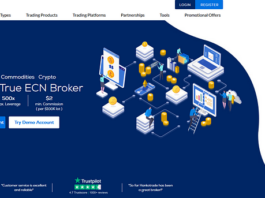Patrick Carroll is an American business executive best known as the founder and CEO of Carroll Org., a real estate investment company based in the United States. He is also the co-owner of S.P.A.L., an Italian football team. In addition, Carroll is a major philanthropist with close ties to many charities. He recently discussed his business and philanthropic interests in an interview.
Background
Carroll’s entrepreneurial spirit first began when skipping college to sell clothing in Tampa, Florida. He then moved to Atlanta, Georgia in 2001, where he started renovating and selling homes, commonly known as “flipping.” He was quickly successful at this endeavor, becoming a full-time real estate investor by 2003. Carroll later transitioned from developing homes to student housing.
He always knew he wanted to be a business leader, even as a child. Once Carroll moved to Atlanta, he started reading the biographies of successful people. Carroll noticed that the majority of people on the Forbes 500 list got their start in real estate, gaining his greatest inspiration from Donald Trump. Reading about his success solidified Carroll’s desire to prosper in business, which he saw as his only career option given his lack of a college education.
The real estate market has changed greatly since Carroll started his career. For example, he was initially able to borrow the entire amount needed to buy and develop a property, but the 2008 downturn changed that. After that, Carroll needed to raise capital to improve properties, requiring frequent travel to New York for meetings with private equity investors. These efforts raised billions of dollars, primarily for properties in the southeastern United States.
Milestones
Buying his first property with 100 percent financing was a key milestone in Carroll’s real estate career because it meant he could flip houses repeatedly. His first major deal in student housing was also significant, as it allowed him to raise institutional capital.
Around 2012, Carroll closed a $240 million deal for a 1,400-unit complex with a capital partner, which was the largest single asset he had ever purchased at that point. This deal greatly stretched his financial resources, so the only way he could get it was to post a non-refundable deposit of about $5 million. Carroll then had one month to raise the balance, which was extremely challenging given how new he was to multifamily housing at that time. He was initially rejected by at least 15 groups with whom he already had relationships, forcing him to meet with a group that was new to him. This new group agreed to provide over $50 million in cash, and he was able to obtain a loan for the remaining balance.
Interest rates began climbing during the due diligence period for this deal, with each day seeming to bring a new high. Carroll’s partner was now in a strong position, as he had already committed his money while his partner was not yet committed. His partner was thus able to force Carroll into a less attractive deal before all the money became nonrefundable. This experience taught Carroll to pick his partners wisely, although he doesn’t regret taking the risk. This deal put him on the map as a new player in real estate, but he was miserable throughout this partnership due to the group’s dishonesty and treatment of his employees.
Investment Strategy
Carroll’s investment philosophy in real estate is simple and hasn’t changed over time. For example, he never buys property unless he believes it’s worth more than he’s paying. This practice may include seeing value in the property that others don’t, but Carroll always expects to make a profit on the purchase. He also buys with attractive financing and free cash flow already in place and is careful to only buy in the best location. In particular, Carroll ensures he can attract a good resident or tenant base before making a purchase.
Carroll is currently in the position of selecting properties that fit his criteria from the many deals he receives daily. However, earlier in his career, he needed to study submarkets by assessing them personally. He would drive through neighborhoods to see how they looked and whether parking lots were empty during the day, indicating that the residents were working. Carroll would also ask many questions of almost anyone who would talk to him. Furthermore, he knew that he probably had a good property if he could easily find a lender or equity partner for it.
Carroll’s rate of investment is currently quite low, due to rising interest rates. He looks for properties that he likes, typically with like-minded investors as partners. However, he can also close deals with his own capital if he doesn’t attract outside investors, which gives him a great advantage over competitors. Carroll is his own approval committee, so he can make decisions quickly compared to large institutional investors.
Market Trends and Insights
Carroll remains informed on real estate trends by reading trade journals and talking to industry insiders like brokers, investors, and lenders almost every day. He also monitors the overall economy for emerging trends that could affect real estate. The shift towards remote work is one of the most significant of these, as people generally don’t want to go into an office every day if they can avoid it. In addition, high-interest rates make it more difficult for homeowners to trade up to more expensive homes, making it more likely that they’ll remain in their current home. As a result, Carroll advises first-time home buyers in 2023 to wait, unless they’re in the Sunbelt.
Mentorship and Learning
Carroll has had more mentors and role models during his career than he can name. He tries to pass on the knowledge that successful business leaders have given him by posting advice on social media. Carroll also reads many resources to continue his education in real estate, saying, “I have read literally thousands of books on business, biographies of successful people, etc. I also read multiple newspapers and magazines daily/weekly and am addicted to CNBC.”
Adaptation and Innovation
The real estate market is constantly evolving, requiring Carroll to adapt to changing conditions and technological advancement. He relies on paying attention and not deceiving himself to remain competitive. Carroll has also had to innovate to stay in business, such as bringing “Wall St.” to the southern US. He adds, “Before I was doing it, institutional investors stuck to the major cities like NYC and San Francisco, and focused on large office buildings and other commercial assets.”
Team Building and Leadership
Carroll believes that building and maintaining a good team is vital to his success in real estate. His approach is to hire the smartest, most ambitious people he can find and help them get rich. He also ensures their interests align with his, making them feel more like owners than employees.
Philanthropy and Giving Back
Like many successful entrepreneurs, Carroll engages in philanthropy. Kickz for Kids is one of his favorite causes, which provides underprivileged children with sneakers. Carroll balances his business pursuits with his philanthropic interests by spending about 20 percent of his time giving back to society.
Advice for Aspiring Entrepreneurs
The best advice Carroll can offer to young real estate entrepreneurs is to partner with someone more experienced and who has been successful in the industry. The knowledge they gain from this experience will be valuable, even if they don’t earn a lot of money from it. In addition, you have to work hard to succeed, as real estate is a highly competitive business.
Legacy and Future Goals
Carroll hopes to leave a legacy as a successful real estate entrepreneur. He wants to be known as a self-made guy who made it and also helped other people make it. Carroll also wants to be remembered as one of the best people he knows.



